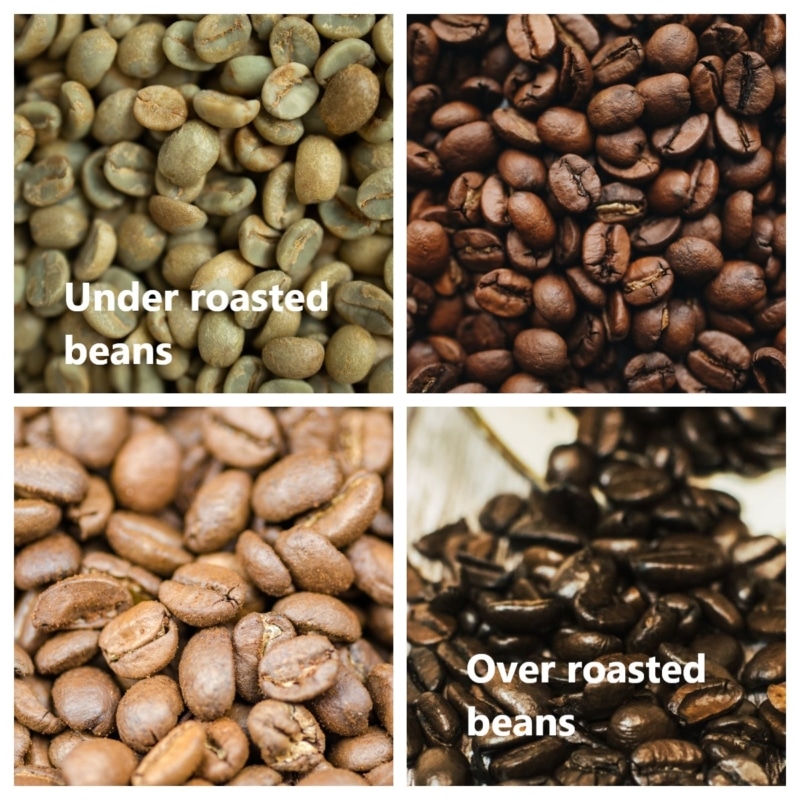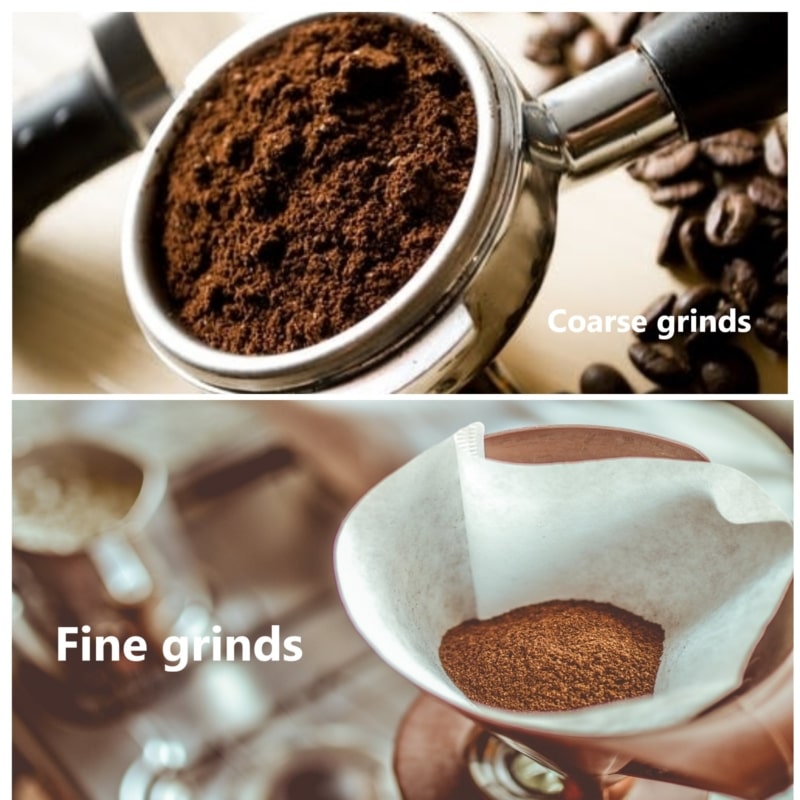Bad coffee – it could happen anytime and to anyone. When your first cup of coffee does not taste up to your par, you immediately realize it is not your day. Of course, what else could be more disappointing than this on your morning mood or exclusive day? How is bad coffee a big deal? It is because more so it has been on our mind all night to have a good coffee when we wake up the next day. Having a good coffee does not only make us less tired but also gives us a dose of freshness and productivity. If you ever feel your coffee does not taste up to scratch some days, it is about the little things we overlook. We can easily take things around us for granted, as such things that make a bad coffee.
We will present you to a list of 5 common mistakes that people usually overlook about it. Not to mention, making a bad coffee can be a common mistake for newbies; nonetheless, if you make a bad coffee, do not waste it. You will later find out how you can fix this problem in this article.
Contents
How To Tell If Is Bad?
Most of us must have this experienced more than once. But how do we define a bad coffee? Do you personally sense it because it is not your taste? Or does it taste too bitter, too light? Or is it not dark enough?
There is more than one right answer and different from one person to another. It really comes down to how you experience the taste, but we have a lot to tell you about bad coffee. In order to tell what exactly it is, we will look at some outstanding principles of a good coffee.
This way, we will be able to pick out the bad from the good. For good rules of thumbs, good coffee is:
- properly roasted and fresh
- fresh ground before brewing
- brew with good ratios and measures,
- made with high quality coffee beans,
- have a grind size that is consistent
- aroma that is appealing and inviting.
Here Are The 5 Common Mistakes That You Made:
It is Over-roasted or Under-roasted
If you remembered your last coffee was too bitter or not like a coffee and you did not like it, your coffee could not be properly roasted by all accounts. There is a high chance that it would be over-roasted or under-roasted.

For this reason, it is not always how the coffee is prepared, but it is because some coffee you bought from the market might be badly roasted. Basically, roasting is a process of making coffee from coffee beans. The duration and temperature ration of roasting determine the profile, aroma, and tastes of the coffee. From extensive views, 2 pronounced types of roasted coffee can explain the coffee is bad no matter how well you prepare. Those 2 types include:
- Under Roasted Coffee:
The coffee is under roasted when the beans have not reached the “first crack”. It has a light brown profile, and more fruity, floral, and acid taste notes. Also, under roasted coffee contains high amounts of caffeine.
- Over Roasted Coffee:
If the coffee is dark brown after the roasting process, it means the coffee is over roasted with too much temperature or for too long. Moreover, over roasted coffee tastes very bitter, smoky, or even burnt. It contains low caffeine.
Take note of these two, and pick out medium roast coffee and medium dark roast coffee are the best options that will not make you upset with your coffee regime of the day. The medium and medium dark roast coffees have good balance between sweet and bitter notes.
- A Little to Perfection:
You need to carefully check the quality of your coffee next time when you choose or purchase your coffee from the market or retails. It is the best to choose a good and trusted brand and good quality coffee. Furthermore, be quick to look through a roasting date, so you will also know if the coffee beans are fresh or not. And this leads to the second point that you overlook it most of the time.
The beans are Stale or Not Fresh
Just proper roasted coffee is not enough but you also need fresh coffee beans; otherwise, you will not have sipping of the best coffee. For some good brand coffee, you can easily find the fresh coffee by a roast date on the package.
As a matter of fact, through the roasting process, the coffee will have a perfect profile, aromas, and taste if it is properly done. But, it does not mean good roasted coffee can always still be brewed for coffee after you bought it many months ago. The reason is that coffee beans do not stay in good quality for life time.
Moreover, some coffee beans lose more of their flavor if they are exposed to the excessive amount of oxygen. If last time you served a bad coffee – tasteless and no smell to your boss or your guest, you might have picked out the stale coffee beans that were left for too long.
- A Little to Perfection:
To avoid this from happening, you should only buy the fresh coffee you need to drink for the two or three weeks. The best period to make you coffee from fresh beans is within the 15 days after roasting, by popular opinions of coffee fanatics.
Also, if you are new and just begin making at home, you should understand how to store coffee beans properly. You need to keep them in an airtight container and store them in a cool and dry place away from direct sunlight in that way the beans stay fresh and good.
Size of grind is too Coarse or too Fine
Too fine or too coarse coffee grinds also make a bad coffee. If you are not doing well when you grind, you will get a sorry cup of coffee. But if you grind too fine, the coffee grounds may taste too bitter as well. If coffee grounds are too large or coarse, you will have less caffeine. However, you need to understand that it is not on the coffee grounds alone, but also the filters you use.

These two are mutual matters. For a real example, it is technically wrong if you brew tiny finely ground coffee with a French coffee because. As a result your coffee has extracted too many bitter compounds and is not pleasant to take a sip.
- A Little to Perfection:
Next time you want to make the best coffee regime at home, you need to understand clearly the chemistry between the coffee grounds and method of your brewing. Also, with the two and by knowing what coffee you make, you avoid making the same mistake.
Take good notes of these tips. If you want to make espresso, brewing fine coffee grounds with paper filters or drip filters is ideal. On the other hand, coarsely grind coffees are perfect with the French press filters.
Brewing time is Too Short or Too Long
In the brewing process, coffee grounds are mixed with water and then the flavors, acid, oil, and everything are pulled out from the grounds. Hence, brewing time has an impact on a cup of your coffee. You have fresh roasted coffee and fair ground but still you have a bad coffee after brew, so the problem is on how you prepare your coffee.
The matter lies that your coffee did not balance extraction because you brew it too short or too long. Brewing for too long brings too much extraction to your coffee and the flavor is beyond the fine bitter note. It also brings bitterness to your face. Instead, brewing for too short of less than 3 minutes, you will likely get a thin and dull caffeine flavor. These are signs your coffee is not well prepared.
- A Little Perfection:
Unbalanced extracted coffee is not yummy but it is everywhere. A balanced extraction is rich with flavor notes, aromas, and fair acidity. Thus, to brew your coffee well at home, you need to leave it drip between 5 – 7 minutes. More than that, you need to put a fair amount of water in the coffee grounds.
Coffee maker is Dirty or Old
It is neither coffee beans, nor coffee grounds; and it is not always on how you brew your coffee. An issue of a bad coffee is sometimes from your coffee maker or coffee filters. It is true that you could have forgotten to clean your coffee filters some days; or at a point you do not remember and use an expired coffee filter.
If you do not deep clean your coffee maker or filter, it could grow bacteria. Also, when the filter is not left to dry, it will produce odors inside the filters. And when you unmistakably use a dirty filter, your coffee has a dead taste.
- A Little to Perfection:
You should always deep clean your coffee filter after every use and leave it to dry. This time smell your coffee filter first before you start to make coffee. If not, you will serve yourself or your guest an unpleasant coffee. More importantly, if you are using a permanent coffee filter, you should not use it for too long. You need to change it for some time if you brew your coffee too often.
Conclusion
By understanding the principles of a good one, we can point out a bad coffee. No one wants to have a bad day with a bad coffee. Of course, the above 5 listed mistakes are not the only reasons that make a bad coffee. There are more than these.
We hope at least they serve as helpful key take-ways for coffee addicts as well as newbies who want to start making coffee at home. If you can exactly figure out why your coffee is bad, you will not repeat the same mistake next time.
References:
